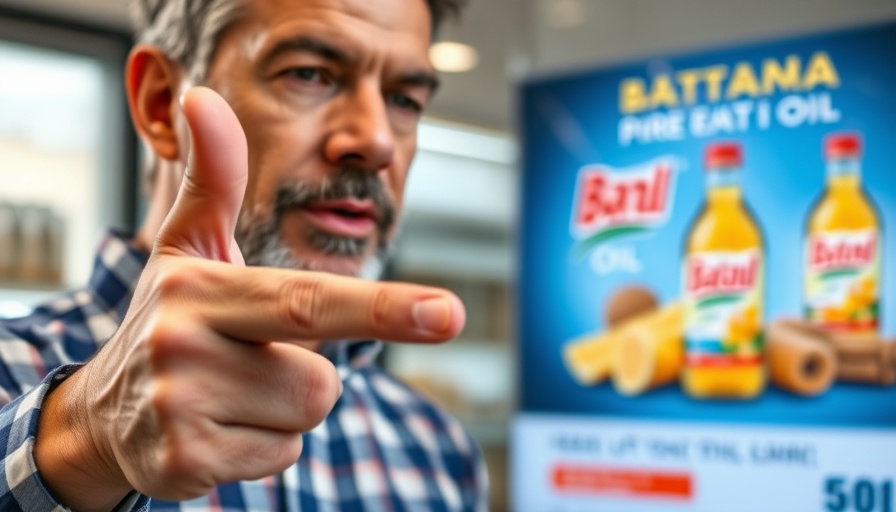
Understanding the Misconceptions Behind AI-Driven Health Products
In today's digital age, misinformation is easier to spread than ever, particularly when it comes to health and wellness. Recently, a viral video titled I DO NOT CLEAN V*GINAS! AI is crazy nowadays! brought to light the alarming trend of AI-generated health advice and products that many consumers are unaware of. As a result, it's crucial to unpack the truth behind these claims and learn how to identify scams among legitimate health products.
In I DO NOT CLEAN V*GINAS! AI is crazy nowadays!, the discussion dives into the risks associated with AI-driven health products, exploring key insights that sparked deeper analysis on our end.
The Danger of Misinformation in Health and Beauty Products
The creator of the video expressed frustration over fraudulent marketing that exaggerates the benefits of supposed miracle remedies like batana oil and moringa. While these ingredients may hold some merit, the idea that low-quality, unverified products can deliver instant results is misleading. As a medical professional, it's essential to recognize that not every trending remedy is scientifically backed or beneficial.
Moreover, the rise of AI tools in your search for wellness can often present a skewed set of recommendations that mislead potential customers. Products that promise dramatic results without clear evidence should be approached with caution. Understanding the source of your information helps protect you from falling into the trap of false claims.
The Value of Natural Remedies: Myths and Realities
Contrary to the marketing hype surrounding products like batana oil, natural remedies can offer genuine benefits. For example, moringa is often praised for its nutritional profile, rich in vitamins and minerals. However, it’s essential to incorporate it safely and effectively into your regimen, instead of relying solely on unverified social media endorsements.
While natural remedies can support overall health, they should never replace proven medical treatments. It's crucial that consumers educate themselves on both the promise and drawbacks of natural treatments they consider. Relying solely on anecdotal evidence can lead to poor health decisions.
How AI Can Mislead and Misrepresent
The video raises pertinent concerns about the authenticity of online health advice shaped by AI. AI-generated images or claims can create a deception of trustworthiness. In particular, the misuse of an individual's likeness to promote fake products undermines the trust consumers have in actual health practices. This form of manipulative marketing exploits vulnerable individuals who are simply seeking solutions for their needs.
Reporting suspicious AI-generated content is vital for protecting others from scams. As consumers, we must be vigilant, share factual information, and help others avoid schemes that could lead them to further health complications or disappointment.
Empowering Yourself with Knowledge
As a consumer in the wellness space, you have the power to choose wisely. Research extensively, consult with professionals, and prioritize evidence-based products and remedies. When it comes to health discussions, trust should always come from proven sources, not AI algorithms. Feel empowered to ask questions and seek corroboration before trying new products endorsed online.
Your Next Steps Towards Informed Decisions
In light of the insights presented in I DO NOT CLEAN V*GINAS! AI is crazy nowadays!, it's your responsibility to stay informed. Engage with credible health information, and question any claims that sound too good to be true. Remember that your health journey is profound and requires thoughtful approaches backed by science and expert consensus.
If anyone is unsure about what products to trust, consider carrying on the conversation with health professionals who can guide you toward reliable, beneficial options. With the right knowledge at your disposal, you can easily distinguish between hype and genuine health advancements.
 Add Row
Add Row  Add
Add 






Write A Comment